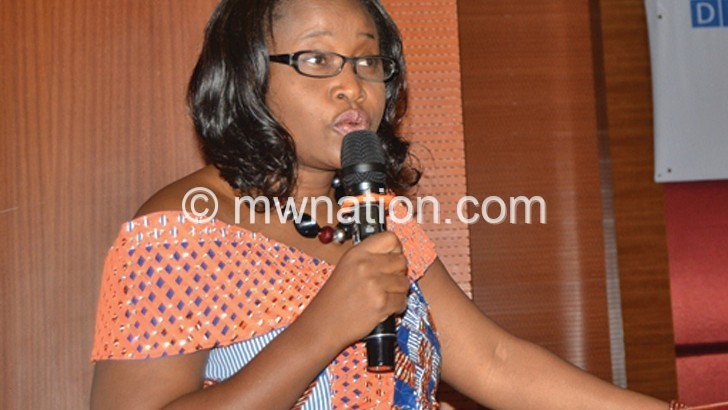Government sets up Asset Forfeiture Unit
Faced with challenges to recover assets and money linked to Cashgate, Ministry of Justice and Constitutional Affairs has set up an Asset Forfeiture Unit (AFU) to lessen the hurdles being faced in the exercise.
The unit, established through the Directorate of Public Prosecutions (DPP) will work hand-in-hand with the Attorney General (AG) and the Anti-Corruption Bureau (ACB) as well as other government agencies.

Ministry of Justice and Constitutional Affairs Principal Secretary Janet Banda said in an interview on Wednesday that the division was currently awaiting functional review.
“We have administratively set up the unit awaiting functional review and designated Dr Jean Priminta as coordinator and Mr [Dziko] Malunda is the deputy coordinator,” she said, adding that the officers were currently working on draft terms of reference (ToRs).
Banda, who is also Solicitor General, said the officers will also be required to do a stock taking of all cases, at least by end of next month, to see what could be done.
Newly appointed ACB director general Reyneck Matemba said the purpose of the unit was to coordinate all the assets and money that are being recovered.
“The assets that we will recover will be deposited into one account… Basically other than working individually as institutions we want to be strategic and focused,” he said.
The formation of the unit comes at a time when government, through a specially established Special Purpose Vehicle (SPV), is struggling to recover anything from the K6.1 billion government paid to its then wholly-owned Malawi Saving Bank (MSB) to rescue 13 individuals and private companies that defaulted loan payments. The SPV was set up in 2016.
But commenting on the formation of the new unit, Economics Association of Malawi (Ecama) president Chikumbutso Kalilombe said he believed the formation of the unit was within the legal system and a cost benefit analysis was done.
He said: “If there is a cost to the setting up they need to have a cost benefit analysis to see whether they are really setting up something they need and is workable.
“Otherwise, I don’t know how they are doing it but for me I would say the courts determine the issue of forfeiting. Aren’t there mechanisms the court uses to follow that through? So I wonder the justification for setting up the unit.”
Section 30 of the Penal Code gives powers to the court to order forfeiture of any property belonging to any person convicted of, among others, corruption, extortion by public officers, public officer receiving property to show favour and corrupt practices.
ACB has so far recovered just below K1 billion through restitution and forfeiture in all the Cashgate cases it has prosecuted.
But Matemba said the amount was not conclusive as the process of tracing some assets was continuing.
“It should be understood that recovery of such assets and money is not easy. It is important to prevent corruption as that is the only sure way of ensuring that the resources are used for intended purposes,” said Matemba.
The DPP and ACB have so far secured 15 convictions but involving 25 different individuals. Out the 15, two were jointly secured by ACB and DPP while unilaterally the bureau and DPP secured six and seven respectively.
Since investigations started the bureau has concluded 40 Cashgate cases out of which 11 are still in courts while further investigations have been instituted on the rest of the cases. n





